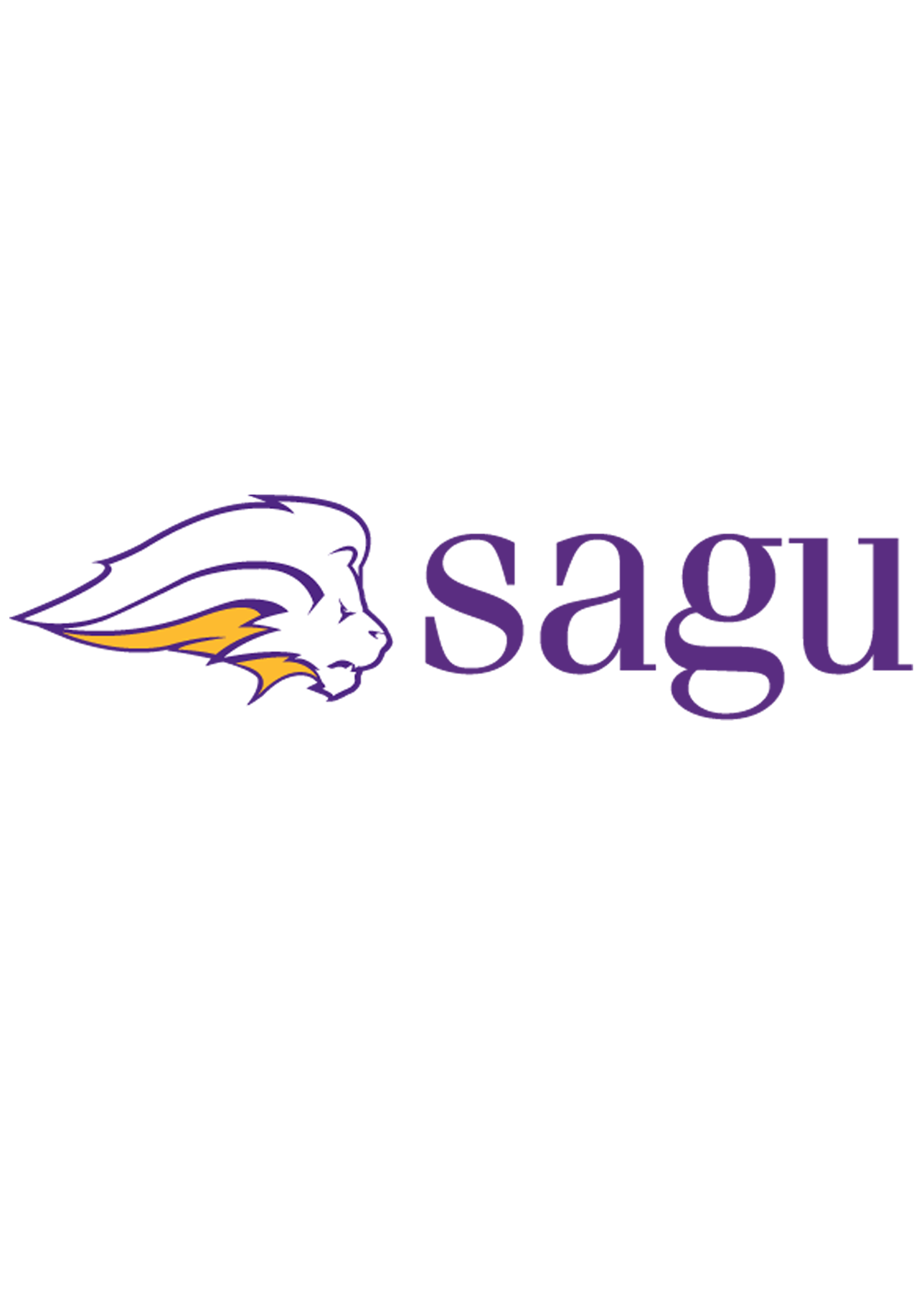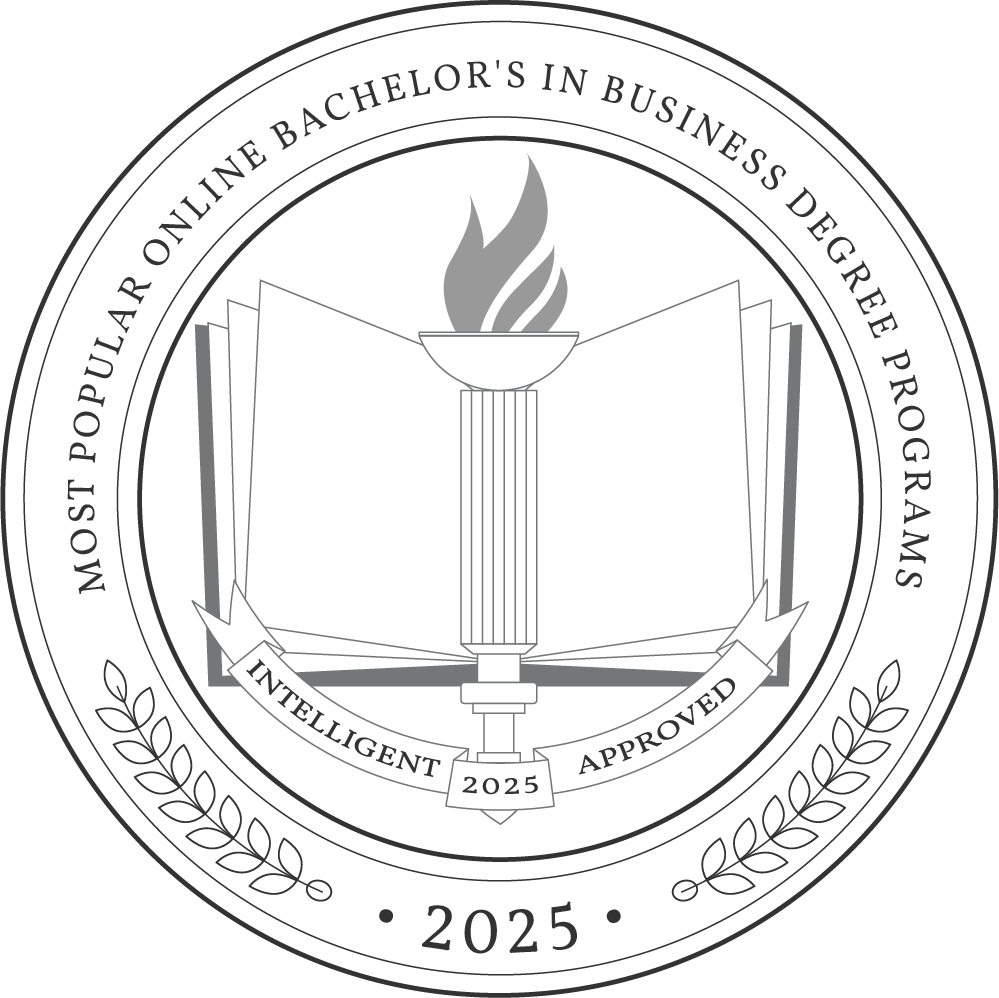The inherent versatility of online bachelor’s in business degrees prepares graduates for careers in high-demand fields with lucrative salaries and significant potential for upward momentum. These degrees provide numerous career opportunities, such as HR specialists, who earn a median salary of $67,650; market research analysts, who earn a median salary of $74,680; and financial analysts, who earn a median salary of $99,890.
With an average investment of $14,688 in annual tuition and about four years of full-time study, pursuing an online bachelor’s in business is a practical and rewarding path for aspiring professionals seeking high-earning career prospects and financial stability.
Why Trust Us
The Intelligent.com Higher Education Team is dedicated to providing students with independent, equitable school and program rankings and well-researched resources. Our expert-driven articles cover topics related to online colleges and programs, paying for school, and career outlooks. We use data from the U.S. Department of Education’s College Scorecard, the National Center for Education Statistics, and other reputable educational and professional organizations. Our academic advisory team reviews content and verifies accuracy throughout the year for the most current information. Partnerships do not influence rankings or editorial decisions.
- Analyzed over 2,000 national, accredited, and nonprofit colleges and universities
- 800+ rankings pages are reviewed and updated yearly
- Content is informed by reputable sources, surveys, and interviews with academic advisors and other experts
- Over 100 data points are reviewed for accuracy and quality throughout the year, including sources
How we rank schools
Our list features the best online Business degree programs at top colleges nationwide. Each school featured is a nonprofit, accredited institution — either public or private — with a high standard of academic quality for post-secondary institutions.
We evaluated each school’s program on tuition costs, admission, retention and graduation rates, faculty, reputation, and the student resources provided for online students. We collected data from trusted sources like the National Center for Education Statistics, individual school and program websites, school admissions counselors, and other data sources. Then, we calculated the Intelligent Score on a scale of 0 to 100 based on the following criterion:
Academic Quality:
- Admission rate versus enrollment rate
- Retention rate of students who return after year one
- Accreditation status (regional and programmatic)
- Nonprofit status, both private and public institutions
Graduation Rate
- Overall graduation rate
- Total number of currently enrolled students, including diversity metrics
- Student-to-faculty ratio
Cost and ROI
- In-state and out-of-state per-credit tuition rates and fees
- Required credits to graduate
- Earning potential after graduation
- Availability of federal student loans, scholarships, and other financial aid options
Student Resources
- Available student services for online-only and hybrid programs
- On-campus amenities like tutoring centers and the number of libraries
Read more about our ranking methodology.
Best 10 Accredited Online Bachelor’s in Business Programs
FiltersInstitution Type
Status
- Intelligent Score
- Alphabetically By University Name
- Acceptance Rate
- Enrollment
- In-state Graduate Tuition
- Out-of-state Graduate Tuition
- In-state Undergraduate Tuition
- Out-of-state Undergraduate Tuition

Brenau University
Intelligent Score: 99.52In-state: $30,000
Out-of-state: $30,000
In-state: $13,356
Out-of-state: $13,356
SAT: 930-1160
ACT: 17-23
$754
Online, On-Campus
Accreditation Council for Business Schools and Programs
120

Campbellsville University
Intelligent Score: 97.48In-state: $24,900
Out-of-state: $24,900
In-state: $8,473
Out-of-state: $8,473
SAT: N/A
ACT: N/A
$424
Online
International Assembly of Collegiate Business Education
120

Liberty University
Intelligent Score: 96.00In-state: $14,791
Out-of-state: $14,791
In-state: $7,935
Out-of-state: $7,935
SAT: 1040-1250
ACT: 21-29
$390
Online
Accreditation Council for Business Schools and Programs
120

Ashland University
Intelligent Score: 94.43In-state: $22,000
Out-of-state: $22,000
In-state: $6,444
Out-of-state: $6,444
SAT: 1000-1208
ACT: 19-24
$590
Online, On-Campus
Accreditation Council for Business Schools and Programs
121

Texas A & M University-Commerce
Intelligent Score: 93.18In-state: $8,395
Out-of-state: $36,849
In-state: $6,775
Out-of-state: $6,775
SAT: 1160-1380
ACT: 26-32
Resident: $351
Non-Resident: $759
Online, On-Campus
Association to Advance Collegiate Schools of Business
120

Southwestern Assemblies of God University
Intelligent Score: 92.81In-state: $20,496
Out-of-state: $20,496
In-state: $10,710
Out-of-state: $10,710
SAT: 900-1120
ACT: 16-22
$430
Online
International Assembly of Collegiate Business Education
120

Azusa Pacific University
Intelligent Score: 92.00In-state: $40,830
Out-of-state: $40,830
In-state: $16,571
Out-of-state: $16,571
SAT: N/A
ACT: N/A
$452 - $527
Online, On-Campus
International Assembly of Collegiate Business Education
120

Maryville University of Saint Louis
Intelligent Score: 91.81In-state: $38,366
Out-of-state: $38,366
In-state: $50,326
Out-of-state: $50,326
SAT: 960-1200
ACT: 19-25
$540
Online
Accreditation Council for Business Schools and Programs
128

Brescia University
Intelligent Score: 91.37In-state: $24,500
Out-of-state: $24,500
In-state: $600
Out-of-state: $600
SAT: 985-1085
ACT: 19-25
$450
Online
Southern Association of Colleges and Schools Commission on Colleges
120

Westfield State University
Intelligent Score: 90.66In-state: $970
Out-of-state: $7,050
In-state: $1,890
Out-of-state: $1,890
SAT: 960-1140
ACT: 19-25
$354
Online, On-Campus
New England Commission of Higher Education
120
How to Choose an Online Bachelor’s in Business Program
Choose your area of study
As business degrees are relatively versatile, choosing an area of study is an excellent way to make you a more competitive hire. Consider asking yourself:
- What are my career goals?
- Which industries interest me?
- What skills do I want to develop?
For example, those seeking managerial roles may thrive in business administration, while creative individuals interested in market research and advertising may enjoy marketing. Additionally, analytical thinkers focused on financial planning and investments may prefer to specialize in finance. Other options include international business, entrepreneurship, and human resources management.
Research schools and programs
Now that you have a specialization in mind, it’s time to begin researching schools and programs. You may come into this process with questions of your own, but here are a few more to help guide your research:
- Is the program accredited?
- How does the curriculum support my intended specialization?
- What is the program’s graduation rate?
- Are there any residency requirements?
- What support is available for online students?
Most of this information is readily available on program websites, but you’ll also benefit from speaking to an admissions counselor or attending a virtual open house.
Prepare for tests and applications
By this point, you’ll likely have a shortlist of schools to which you’d like to apply. Make sure to request certain application materials — like letters of recommendation and transcripts — early to avoid delays and last-minute stress. Set aside ample time to write your personal statement or essay responses, reflecting on your goals and experiences. If your top schools require standardized test scores, consider enrolling in an SAT or ACT prep program to boost your performance.
These steps ensure a smooth application process and improve your chances of acceptance into a preferred program. Proper preparation also illustrates your dedication and readiness for undergraduate-level coursework.
Select your program
Once acceptance letters arrive, revisit your initial criteria and focus on the factors most important to you, such as program quality, specialization options, and support services for online learners. Then, evaluate how each school performs in these areas.
If you haven’t already done so, assess the total cost of attendance and compare financial aid offers to measure the financial feasibility of each program. This approach ensures you choose the program that best aligns with your academic and career goals while remaining within budget.
Determine how you’ll pay for your degree
To pay for your degree, you’ll want to start by submitting the FAFSA, which determines your federal financial aid eligibility — including grants, loans, and work-study programs. Applying for institutional and external scholarships and grants can further reduce costs.
For part-time work, consider work-study programs that offer resume-boosting experience and additional funding. Employed students should ask their employer about tuition reimbursement programs, which cover some education-related expenses, in exchange for agreeing to work for the company after graduation.
Federal loans are often available to bridge any remaining financial gaps. Still, borrowing cautiously is essential, as every dollar taken out on a loan will eventually need to be repaid with interest.
What Can You Expect From an Online Bachelor’s in Business Program?
By pursuing an online bachelor’s in business, you can gain essential management, marketing, finance, and operations skills. Coursework generally includes accounting, business ethics, economics, and strategic management classes, along with elective options to specialize in areas such as international business or entrepreneurship.
Most programs require a capstone course, where you’ll apply your knowledge to real-world business problems. Often, this capstone course involves creating a resume-boosting portfolio to make graduates more competitive in the job market.
Full-time students can finish in about four years, while part-time students, depending on their course load, might take six to eight years.
Potential courses you’ll take in an online bachelor’s in business program
- The Legal Environment of Business: In this foundational course, students explore the legal principles that govern business operations, including contracts, employment law, and regulatory compliance. This class helps students understand the legal context in which businesses operate, ensuring they can navigate legal challenges effectively.
- Business Finance: Another core requirement, this course covers the fundamentals of financial management, including financial analysis, capital budgeting, and risk management. Participants learn to make informed financial decisions and understand the impact of monetary strategies on a company’s performance.
- Principles of Management: Students are introduced to management theories and practices, focusing on planning, organizing, leading, and controlling within an organization. The course emphasizes the development of managerial skills and effective leadership techniques.
- Principles of Entrepreneurship: Typically deemed an elective, this course examines the process of starting and managing new ventures, including idea generation, business planning, and securing financing. Students learn to develop entrepreneurial skills and understand the challenges and opportunities of launching a business.
- Marketing Management: In this elective course, learners study the strategies and tools used in marketing products and services, including market research, consumer behavior, and promotional techniques. The course aims to allow students to create and implement effective marketing plans.
Online Bachelor’s in Business Degree Frequently Asked Questions
How do I apply to an online bachelor's in business degree program?
While many of these programs have a few specific requirements, they also have standard criteria, including:
- High school diploma or equivalent
- Official transcripts from all previously attended institutions
- Personal statement or essay
- Letters of recommendation
- SAT or ACT scores, if required
To apply, gather these documents and complete the online application form on the institution’s website. During this process, be sure to speak with an admissions counselor to ensure you understand the program’s specific requirements and deadlines.
How much does an online bachelor's in business degree cost?
The average annual tuition for a bachelor’s degree is $14,688. As an online student, you’ll also want to be prepared for additional expenses like technology fees, textbooks, and software.
Unlike in-person students, online learners save on commuting and housing costs but may need to invest in a reliable computer and high-speed internet. Despite these additional expenses, online programs are often more affordable due to their flexibility and the ability to maintain employment while studying.
How long does it take to earn an online bachelor's in business degree?
For full-time students, obtaining an online bachelor’s in business takes about four years. Depending on their course load, part-time students may take six to eight years. Online learning offers flexibility, which can cause variations in completion time; students can often accelerate or decelerate their pace based on personal and professional commitments. Additionally, it’s crucial to double-check the required credits for your specific program, as these can vary and impact the overall duration of your studies.

